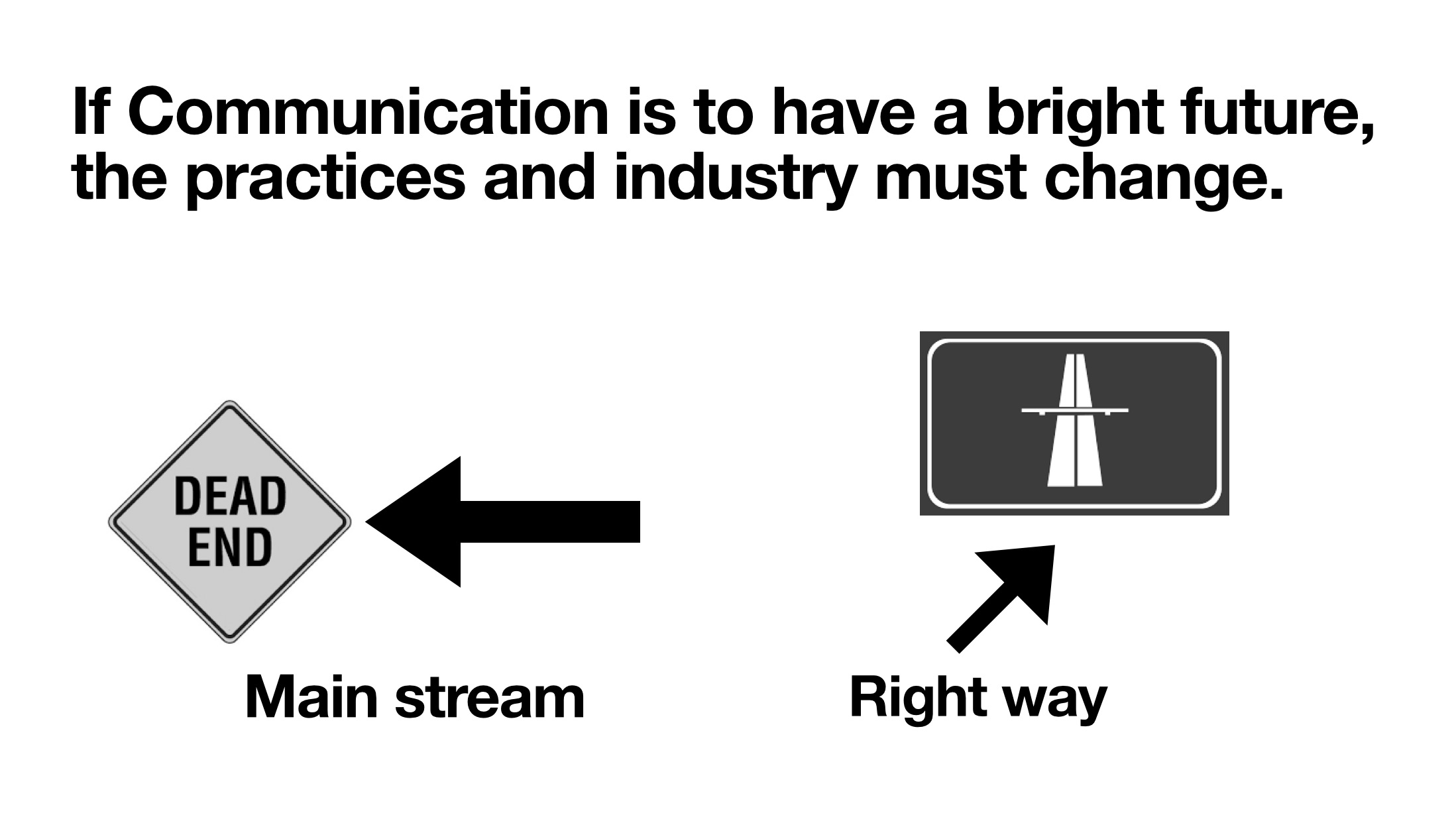If communication is to be effective and deserve respect, the concepts, practices and the industry must change.
This brief and condensed, dissident, potentially provocative, earnest and well-intentioned opinion piece is put forward from 30 years experience out of annoyance and serious concern.
The findings also draw from complexity, social, neuro and strategy science.
In many cases, communication and PR don’t bring the desired or necessary results despite best efforts. The practices are insidiously degenerate and unconsciously contribute to the general decline of trust. Misuse of communication‘s capabilities is a threatening phenomenon, even if unintended.
The reasons become clear by a critical look at the reality of the communications practice and industry, bulletpoint style.
The destructive issues
- Communications have been industrialised — with trendy standard products and processes under changing labels
- Communications as a service — no role in decisions on fundamentals
- Limitation to short-term operations and tactics — uncoupled from general goals and strategy
- Focus on output and content — alibi actionism with hyper gibberish
- Best practices and copying — unoriginal, generalised, same old exercises
- Self-centric, top-down, one-to-many unidirectional megaphone thinking — stakeholders and social interests are neglected, or violated
- Control illusions, also in the Internet — hopeless approach
- Never-ending search for measurement — using irrelevant criteria
- Profit growth pressure at communication service firms — selling instead of giving advice, focus off clients and their progress
- On the dark side — untruthfulness, whitewashing, unethical practices, wrong assignments and principals
Unreflectively, communication practitioners and careerists are trained in such negative and risky habits.
What functioning communication means
In contrast, for communication to achieve real results and (re-)establish trust, one needs to adhere to these principles.
- Deal with communications as a continuous, open process
- Communication means behaviour in relations
- Treat the specific case starting from zero with fantasy
- Orient on the superior objectives, values, and strategy, and the long view
- Begin and steer with context, i.e. outcome, goals, rules
- Consider all entitled stakeholders focusing on reactions and desirable behaviours (also in measurement)
- Convey the reality and truth and offer esteem and respect
- Go to the controllable root which is the own behaviour
- Earn acceptance, appreciations, trust, resilience by responsible behaviour towards stakeholders and in society
- Support positive change against resistance of the unsustainable
Very simple and very hard, like most change and purgation, but the sensible choice if the communication practice and industry shall have a bright future.
